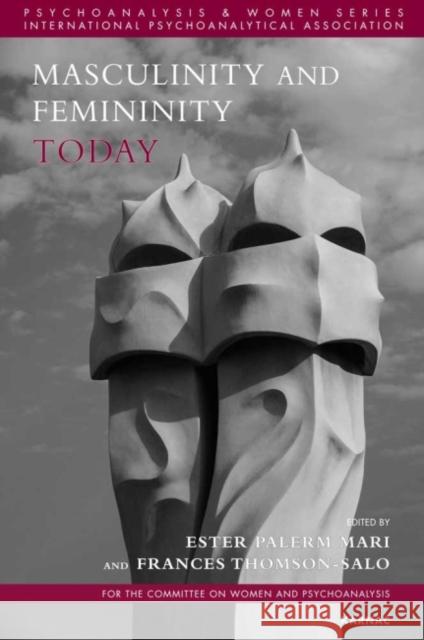Masculinity and Femininity Today » książka
Masculinity and Femininity Today
ISBN-13: 9781780491905 / Angielski / Miękka / 2013 / 186 str.
Masculinity and Femininity Today
ISBN-13: 9781780491905 / Angielski / Miękka / 2013 / 186 str.
(netto: 153,88 VAT: 5%)
Najniższa cena z 30 dni: 159,60
ok. 22 dni roboczych.
Darmowa dostawa!
Ester Palerm Mari and Frances Thomson Salo gather a wide range of psychoanalytic writing about femininity and masculinity from British, European, and North and South American perspectives, to integrate theoretical and clinical points sometimes quite controversially in contributions that are cutting edge. The authors address what is currently understood by -masculine- and -feminine- in psychoanalytic terms, and how these issues manifest in the body, gender, sex, sexuality and the life-cycle, and cover aspects both productive and generative, constricted and defended. Beginning with an overview of psychoanalytic understanding of masculinity, male development, and a dimension of genital masculinity to do with the inner body reflecting more open and receptive aspects of male psychic experience, the book then turns to how adolescents discover their sexuality and come to -own- their sexual bodies as they grow towards adulthood. Other papers explore the problems of male sexuality and impotence, lack of differentiation between masculinity and femininity in the self, the role of the male analyst in transformations of masculinity and the analyst's need to have a good internal parental couple and to be aware of the intersubjective context of gender and sexuality. Two chapters movingly convey a young child's struggle with issues of sexuality in psychoanalysis.
The authors, from a background of considerable clinical and technical contribution, consider the extent to which masculinity and femininity are present in each individual, and how this affects the development of the -masculine- analytic function in a female analyst, and the -feminine- analytic function in a male analyst. What constitutes femininity and masculinity from a psychoanalytic perspective is continually influenced by clinical practice, scientific knowledge and perspectives from current opinion, and rapidly evolving. The authors at the forefront of new thinking aim to explore clinical and scientific topics in an accessible way not only for psychoanalytic psychotherapists but also the wider public to contribute to further advances in this field.











